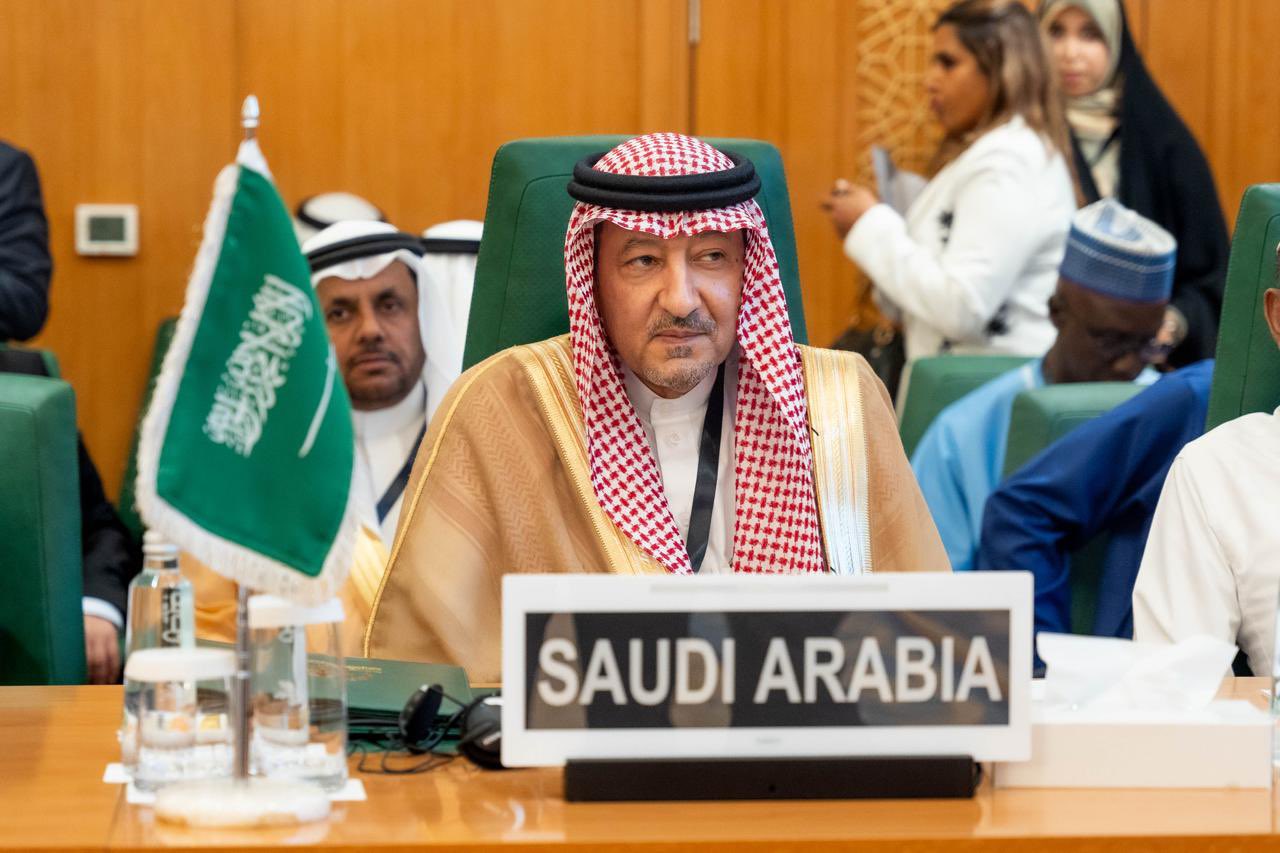RIYADH: The assassination of Hamas political leader Ismail Haniyeh risks tipping the Middle East into a “wider conflict,” the chair of the Organization of Islamic Cooperation said on Wednesday.
Speaking at an extraordinary meeting for the foreign ministers of member states, Gambian Foreign Minister Mamadou Tangara said the killing served only to “escalate the existing tensions potentially leading to a wider conflict that could involve the entire region.”
Haniyeh’s death “will not quell the Palestinian cause but rather it amplifies it, underscoring the urgency for justice and human rights for the Palestinian people,” Tangara, whose country currently chairs the OIC, said.
“The sovereignty and territorial integrity of nation states are fundamental principles underpinning the international order. Respecting these principles has profound implications and their violation equally carries significant consequences,” he said.
OIC Secretary-General Hissein Brahim Taha condemned Haniyeh’s killing and the “genocide committed by Israel in the Gaza Strip, the West Bank,” and Jerusalem.
He called on the UN Security Council to assume its responsibilities and take the necessary measures to compel Israel to respect the rule of international law and stop its aggression and attacks that threaten regional and international peace and security.
Taha said that the council should demand an immediate and comprehensive cessation of the ongoing Israeli aggression on the Gaza Strip in order to avoid the risk of full-scale regional war that would undermine the security and stability of the entire Middle East.
He stressed the need for joint efforts to compel Israel to abide by international legitimacy resolutions and said that the necessary measures should be taken to implement the recent advisory opinion issued by the International Court of Justice regarding the illegality of the Israeli occupation.
Taha condemned the Israeli Knesset’s resolution rejecting Palestinian statehood and its designation of UNRWA as a terrorist organization. He also called for the provision of more political and financial support to UNRWA’s budget so that it can exercise its vital role in providing basic services to Palestinian refugees and contribute to alleviating the humanitarian suffering of the Palestinian people in the Gaza Strip.
Taha called on key players in the international community to sponsor a political process to end Israeli occupation and achieve peace based on the vision of the two-state solution in accordance with international legitimacy resolutions.

Saudi Deputy Foreign Minister Waleed Al-Khuraiji attends the OIC meeting on Wednesday. (SPA)
Saudi Deputy Foreign Minister Waleed Al-Khuraiji attended the meeting on behalf of Foreign Minister Prince Faisal bin Farhan, the Saudi Press Agency reported.
He told the summit that his government was aware of the danger of the escalating events in the Palestinian territories due to Israeli attacks and illegal practices against Palestinians inside and outside them.
He also condemned Haniyeh’s assassination as a “flagrant violation of the sovereignty of the Islamic Republic of Iran, its territorial integrity and national security, international law and the Charter of the United Nations and constitutes a threat to regional peace and security.”
Al-Khuraiji said the Kingdom condemned Israeli attacks against civilians and rejected any attack on the sovereignty of states or interference in the internal affairs of any state, in accordance with international conventions and the OIC Charter.
He expressed the Kingdom’s deep concern over the escalation of Israeli violations which have resulted in large numbers of dead and wounded civilians in the Gaza Strip and the West Bank, shortages of food, medicine and fuel and the destruction of the health sector.
He also renewed the Kingdom’s call for the international community to take effective action to hold Israeli forces fully responsible for their crimes and violations.
The Kingdom supported all efforts aimed at ending the occupation of the Palestinian territories and reaching a comprehensive solution that enabled people to establish an independent Palestinian state in accordance with international legitimacy resolutions and the Arab Peace Initiative, Al-Khuraiji said.































